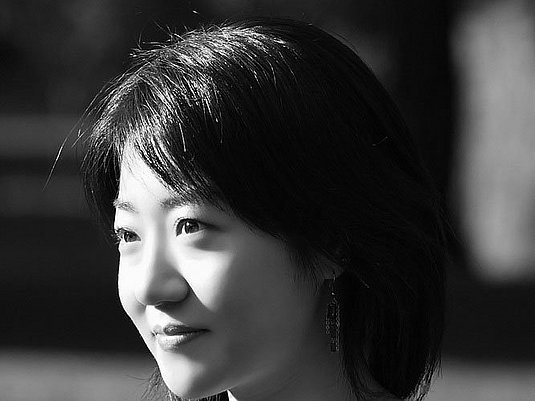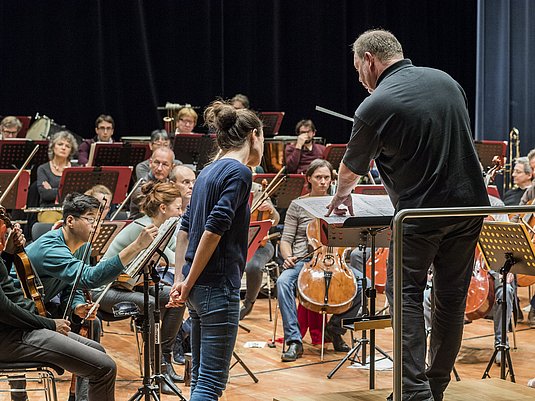Jury
Pre-jury
Répétiteurs
Thomas Cooley
With an internationally recognized career spanning more than two decades, tenor Thomas Cooley continues to set the standard in his field, delighting audiences with unforgettable performances in North and South America, Europe and Asia. His engagements have taken him to 30 US states and numerous countries around the world.
Cooley has performed in renowned concert halls such as Carnegie Hall, Concertgebouw, Konzerthaus Berlin, Berlin Philharmonie, Tonhalle Zurich, Symphony Hall Boston, Avery Fisher Hall, Konzerthaus Vienna, Walt Disney Hall, Kennedy Center, Bavarian State Opera, Tchaikovsky Hall in Moscow, KKZ Lucerne, Festival Hall Osaka and Esplanade Hall in Singapore. He has worked with renowned conductors such as Helmuth Rilling, Donald Runnicles, Teodor Currentzis, Michael Tilson Thomas, Nicholas McGegan, Robert Spano, Franz Welser-Möst, Bernard Labadie, Harry Bicket and Wolfgang Sawallisch, Osmo Vänskä, Eiji Oue, Lan Shui, Matthew Halls, David Robertson, Dame Jane Glover, Markus Stenz, Carlo Rizzi, Thomas Søndergård, Manfred Honeck, Jaap van Zweden, Edo de Waart, Paul McCreesh and Andrea Marcon.
His most important engagements include regular appearances with internationally renowned orchestras and ensembles such as the Bavarian Radio Symphony Orchestra, the Gewandhaus Orchestra Leipzig, the New York Philharmonic, the Minnesota Orchestra, the St. Paul Chamber Orchestra, the Copenhagen Philharmonic, the National Symphony Orchestra, the Atlanta Symphony Orchestra, the Orchestre Symphonique de Québec, the St. Louis Symphony Orchestra, the National Arts Centre Orchestra Ottawa, the Orchestra of St. Luke's, Trinity Wall Street, St. Thomas Fifth Avenue, the Singapore Symphony Orchestra, the Mark Morris Dance Group, the Jerusalem Symphony Orchestra and the Osaka Philharmonic.
A proven specialist in the works of Handel and J.S. Bach - particularly in the role of the Evangelist - Cooley has performed with renowned ensembles such as the Thomanerchor and the Gewandhausorchester Leipzig, the Windsbacher Knabenchor and the Akademie für Alte Musik Berlin, the Dresdner Kreuzchor and the Internationale Bachakademie Stuttgart. He works regularly with historically informed ensembles such as the Philharmonia Baroque Orchestra, the Handel Festivals in Göttingen and Halle, Les Violons du Roy, MusicAeterna, Tafelmusik, the Handel and Haydn Society, Boston Baroque, the Bach Festivals in Carmel and Oregon, Pacific MusicWorks, Music of the Baroque and the Munich Bach Choir.
Cooley works closely with baroque specialist Nicholas McGegan, with whom he has performed over one hundred concerts at the Göttingen Handel Festival, with the Philharmonia Baroque Orchestra, the Cantata Collective and with leading orchestras throughout the United States. He has also made numerous CD recordings.
From 2002 to 2006, Thomas Cooley was a member of the ensemble at the Staatstheater am Gärtnerplatz in Munich. In the course of his career, he has performed over 35 operatic roles at major opera houses such as the Bavarian State Opera, the Krakow Opera, the Minnesota Opera, the Cincinnati Opera, the Göttingen Handel Festival and with the Mark Morris Dance Group at Lincoln Center.
His discography includes over 20 recordings on labels such as Carus, CPO, Deutsche Grammophon, Hänssler, MDG, Orchid Classics and Sony. A new recording of Bach's St. Matthew Passion under the direction of Nicholas McGegan will be released by Avie Records in 2026.
In 2025, Thomas Cooley was appointed Visiting Associate Professor of Voice at the Jacobs School of Music at Indiana University. He was previously on the faculty of Choate Rosemary Hall.
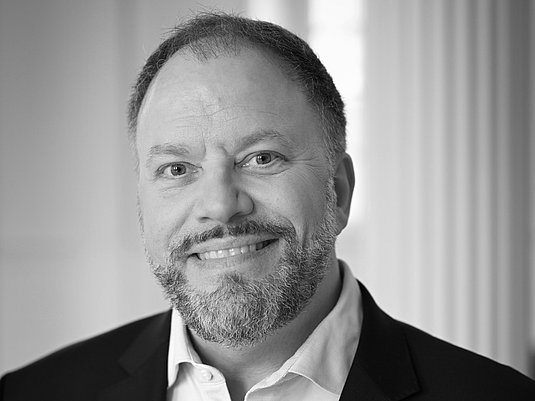
Brigitte Lindner
Brigitte Lindner already appeared as a soloist with the world-famous record company EMI-Electrola during her studies at the Munich Academy of Music, for example in the opera "Hansel and Gretel" under the direction of Heinz Wallberg, "Die Zauberflöte" under Bernhard Haitink, and others. Her vocal development was accompanied by Hanna Scholl-Völker, Helen Donath and Nicolai Gedda. Her first permanent engagement took her to the Staatstheater in Braunschweig, where she sang roles such as "Gretel", "Maria" (Westside Story), "Valencienne" (The Merry Widow) and others.
Under the direction of Giuseppe Sinopoli, she sang the "Shepherd Boy" in Wagner's "Tannhäuser" at the Bayreuth Festival under the direction of Wagner's grandson Wolfgang Wagner and appeared several times at the Ludwigsburg Festival under Wolfgang Gönnenwein. This was followed by a career as an opera singer, which took her to many stages in Germany and abroad and resulted in numerous CD productions for EMI-Electrola, the Dabringhaus and Grimm label and CPO. As a partner of René Kollo and Francisco Araiza, she has performed at gala evenings, including at the Alte Oper in Frankfurt and the Kölner Philharmonie. Numerous radio recordings with WDR, BR, NDR and Deutsch landradio followed. Brigitte Lindner also presented the DLF program "Klassik, Pop etc.". She has worked with first-class colleagues such as Helen Donath, Anneliese Rothenberger, Gabriele Schnaut, Nicolai Gedda, Hermanna Prey, Lucia Popp and others.
She has also performed with outstanding conductors, including Karlheinz Bloemeke, Willi Boskovsky, Klaus Donath, Peter Falk, Michail Jurowsky, Toshiyki Kamioka, Bernhard Klee, Willi Mattes and Enrique Ricci, to name but a few. In addition to her artistic activities, she has always been committed to teaching. From 2002 to 2009, she taught singing classes at the Cologne University of Music in Aachen and Wuppertal. In 2009, she was appointed Professor of Singing and Vocal Pedagogy at the Cologne University of Music and Dance. She gives master classes and is a jury member at competitions. She has developed an additional spectrum by studying EDU - Kinesthetics and Music Kinesiology. She holds courses and lectures in these links between kinesiology, singing and music. Since September 2014 Brigitte Lindner is president of the "BDG-Stiftung Gesang" of the Bundesverband deutscher Gesangspädagogen (BDG).
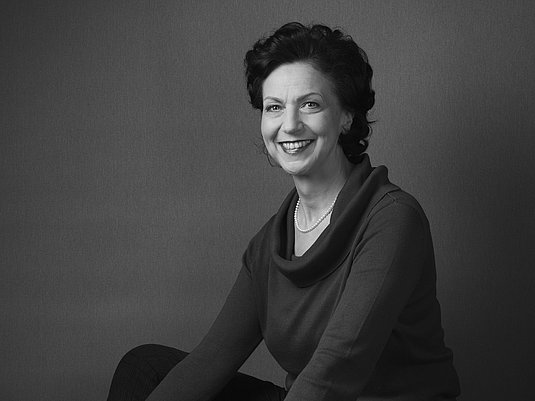
Hein Mulders
Hein Mulders has been Artistic Director of Oper Köln since the 2022/23 season. After successfully completing his studies in art history, musicology and opera history in Amsterdam, among others, he began working in the vocal department of a leading music agency in The Hague as assistant to the management. He then took on the position of orchestra director of the Dutch National Youth Orchestra. In 1995 Hein Mulders joined the Vlaamse Opera in Antwerp/Ghent as casting officer and one year later became part of the management team as head of casting and artistic planning. In the summer of 2006, he moved to the Nederlandse Opera in Amsterdam as Opera Director. From 2013 to 2022, he was Artistic Director of the Aalto-Musiktheater Essen, the Philharmonie Essen and the Essen Philharmonic Orchestra, when these three divisions of Theater und Philharmonie Essen (TUP) came under one management for the first time. Hein Mulders is a jury member of numerous international singing competitions.
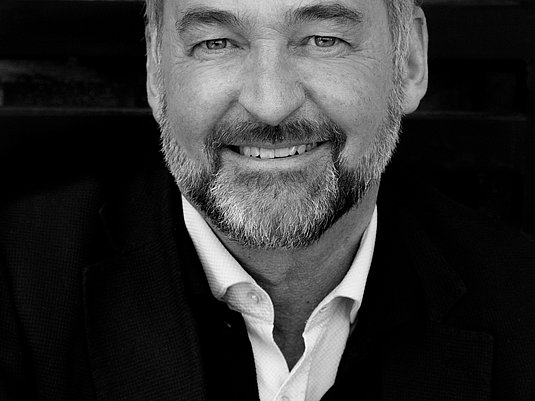
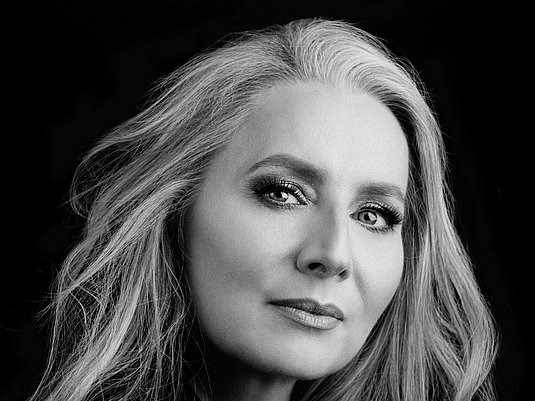
Anna Radziejewska
Anna Radziejewska (mezzo-soprano) is a graduate of the Fryderyk Chopin University of Music in Warsaw, where she studied with Professor Jerzy Artysz and received her diploma with distinction. She has won prizes at numerous national and international competitions.
Her international career has taken her to Europe, Japan, Korea and China as a soloist. She has made guest appearances at the Bavarian State Opera, La Scala in Milan, the Theater an der Wien, the Lucerne Theater, the Cologne Opera, the WDR Funkhaus Cologne, the Grand Théâtre de Genève, the Opéra National du Rhin, the Theater Freiburg, the Vlaamse Opera, the Concertgebouw Amsterdam, the Opéra National de Paris, the Mannheim National Theatre, the Polish Royal Opera in Warsaw, the Cité de la Musique in Paris, the Teatro de la Zarzuela in Madrid, the Grand Théâtre d'Aix-en-Provence, the Tongyeong Concert Hall, the Tokyo Bunka Kaikan, the Wuhan Qintai Hall and the Shanghai Symphony Hall. She has also performed at renowned festivals, including the Salzburg Festival, the Schwetzingen Festival, the MärzMusik-Festival Berlin, the Wiener Festwochen, the Holland Festival, the Warsaw Autumn Festival, the Biennale di Venezia and the Tongyeong International Music Festival.
She has worked with renowned conductors such as Harry Bicket, Attilio Cremonesi, Andreas Spering, Sébastien Rouland, Johannes Debus, Tito Ceccherini, Beat Furrer, Jean-Christophe Spinosi, Daniel Grossmann, Friedemann Layer, Evan Christ, Antoni Wit, Wojciech Michniewski, Jacek Kasprzyk, Marek Moś, Michel Tabachnik, Marco Angius, Jean Tubéry, Emilio Pomàrico, Paolo Carignani, Jerzy Maksymiuk, Maximiano Valdés, Lilianna Stawarz and Dawid Runtz.
In opera productions, she has worked with directors such as Robert Carsen, Achim Freyer, Trisha Brown, Rebecca Horn, Vincent Boussard, Joachim Schlömer, Ludger Engels and Ryszard Peryt, Mariusz Treliński, Marek Weiss, Reinhild Hoffmann, Maciej Prus, Andrea Schwalbach, Jitka Stokalska, Natalia Kozłowska, Pia Partum, Jacek Tyski, Kamila Siwińska, Jarosław Kilian and Waldemar Raźniak.
Her most important roles include parts in operas by Monteverdi (Ottavia, Penelope), Purcell (Dido), Blow (Venus), Handel (Rinaldo, Agrippina, Giulio Cesare, Ruggiero, Disinganno), Vivaldi (Farnace), Mozart (Giuditta, Dorabella, Cecilio, Ramiro, Idamante), Rossini (Tancredi, Arsace, Rosina, Angelina, Isabela, Pippo), Britten (Lucretia), Tchaikovsky (Olga), Mascagni (Beppe) and Sciarrino (Izumi, Lady Macbeth, Donna, La Malaspina).
Her concert repertoire is also very extensive. It includes recitals (with Katarzyna Jankowska, Mariusz Rutkowski, Maurizio Grandinetti, Lilianna Stawarz and Paweł Sommer, among others), oratorios and vocal-instrumental works as well as concerts with early music ensembles such as Collegium Musicum Köln, Concerto Vocale, Il Tempo, MACV, Sinfonietta Žilina, La Fenice, Royal Baroque Ensemble, Capella Regia Polona. She also performs regularly with contemporary music ensembles such as Klangforum Wien, Algoritmo, London Sinfonietta, Solistenensemble Kaleidoskop, Icarus and the Spółdzielnia Muzyczna.
She is considered one of the most outstanding interpreters of the works of Salvatore Sciarrino, who wrote several roles to suit her - including Izumi in Da gelo a gelo, La Donna in Superfumina, as well as works such as Cantiere del poema and Immagina il deserto. Wojciech Blecharz also dedicated a role to her in the opera Transcryptum, as did Dariusz Przybylski in Orfeusz (Apollo) and Chansons d'Apollon.
Her awards include the Andrzej Hiolski Prize for the best opera debut (2001), the Bronze Gloria Artis Medal for Cultural Merit (2010), the Silver Cross of Merit of the Republic of Poland (2012), the Annual Prize of the Polish Minister of Culture (2023) and the Silver Gloria Artis Medal (2025).
Anna Radziejewska has also worked as a singing teacher since 1999 and is currently a professor at the Fryderyk Chopin University of Music in Warsaw. Her graduates include Jakub Józef Orliński, Artur Janda and Andżelika Wiśniewska. She is regularly invited to international masterclasses - including in Poland, China and Denmark.
She has been working with the DUX Recording Producers label since 2007 and has released recordings of works by Ignacy Jan Paderewski (nominated for the Fryderyk Prize 2008), Karol Szymanowski (nominated 2009, awarded the Orphée d'Or 2009, selected by ARTE), Witold Lutosławski (nominated 2014), Oskar Kolberg (2015), and again I. J. Paderewski (nominated 2016) and Rime (2019). She received the 2019 Fryderyk Prize for her recording of Antonio Caldara's Maddalena ai piedi di Cristo (Amor Terreno).
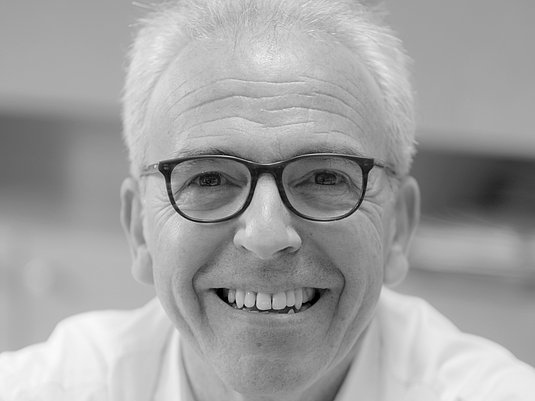
François Le Roux
François Le Roux studied singing with François Loup, Vera Rosza and Elizabeth Grümmer. His international career began in 1978 when he won both the Maria Canals Competition in Barcelona and the International Singing Competition in Rio de Janeiro.
François Le Roux was a permanent member of the Lyon Opera ensemble from 1980 to 1985. This was followed by guest engagements at major European opera houses such as Paris, Milan's La Scala, Hamburg, Frankfurt, Zurich, London (Covent Garden), Venice, Vienna, Los Angeles and festivals as well as Schwetzingen, Glyndebourne, Aix en Provence and Santa Fe (USA).
François Le Roux's wide-ranging repertoire includes the most important opera roles from Monteverdi (Orfeo, Ulisse...), Mozart, Rossini, Donizetti, to Ravel, Poulenc, Bizet, Gounod and Massenet.
In 1987, for his first Don Giovanni as the title role, he won the "Prix de la Critique" in Paris.
The critics wrote about his portrayal of Pelléas in Debussy's Pelléas and Mélisande: "...the best Pelléas in 30 years...". He has now sung this role over a hundred times worldwide and has also recorded it for Deutsche Grammophon under Claudio Abbado with the Vienna Philharmonic. He has been singing Golaud in the same opera since 1998, with great success. He sang it for the anniversary performance of the opera on April 30, 2002 at the Opéra-Comique in Paris, conducted by Marc Minkowski.
He has also participated in several world premieres by David Lang, Harrison Birtwistle, Hans Werner Henze and Hans-Jürgen von Bose.
François Le Roux is regarded as an ideal interpreter of French song, his partners in recitals are the pianists Pascal Rogé, Graham Johnson, Jeff Cohen and Olivier Godin.
In addition, François Le Roux has made a number of recordings, including a complete recording of the songs of Duparc and Fauré. He has recorded for DECCA-Universal, HYPERION, EMI, PASSAVANT Music, CHANT DU MONDE and LIGIA Digital. His recording of the Albert Roussel songs with orchestra (on BMG-RCA) was awarded the most prestigious French Record Prize (Académie Charles Cros) in 1999, and his latest recording of Henri Dutilleux Intégrale des Mélodies (on PASSAVANT Music) won the Michel Garcin Prize of the Académie du disque lyrique Français in Paris in 2016.
Since 1990, François Le Roux has given master classes on the interpretation of French song in Saint Jean-de-Luz (Académie Ravel), Lyon (Atelier Lyrique de l'Opéra and Conservatoire National Supérieur de Musique), in the U.S.A. (Cleveland Art Song Festival), in Finland (Sibelius Academy Helsinki), among others. He is the Artistic Director of the "French Song Academy Francis Poulenc" in Tours since 1997. In 1996, he had the honor to receive the French National Degree "Chevalier des Arts et des Lettres", and in 1997 he was named "Musical Personality of the Year" by the French Critics Society. His first book, Le Chant intime, on the interpretation of French song (Fayard, Paris, August 2004, and, in English, Oxford University Press, 2021), written with Romain Raynaldy, was awarded the "René Dumesnil Prize 2004" by the Académie des Beaux-Arts. His second book, also with Romain Raynaldy, L'opéra français-une question de style, on the interpretation of French opera, has been published (editor Hermann) since 2019.
He was a voice teacher at the Paris Conservatoire National Supérieur de Musique in 2015, and has been teaching at the Ecole Normale de Musique Alfred Cortot in Paris for 10 years.
Christopher Ward
Christopher Ward, born in London in 1980, has been General Music Director at Theater Aachen since 2018. Prior to this, he was First Kapellmeister at the Saarländisches Staatstheater in Saarbrücken from 2014 to 2018. From 2009 to 2013, he was Kapellmeister and assistant to the General Music Director at the Bavarian State Opera. Prior to this, he worked as Kapellmeister and solo repetiteur at the Staatstheater Kassel from 2005 to 2009. His first permanent position took him to the International Opera Studio of the Zurich Opera House in 2004/2005 as conductor and répétiteur. Prior to this, in 2003/2004, he was a scholarship holder in the area of accompaniment at Scottish Opera and at the Royal Scottish Academy of Music and Drama in Glasgow.
Ward began his musical career as a choirboy at Magdalen College in Oxford (1989-1993). He was then a pupil and scholarship holder at Tonbridge School in Kent, where he later also served as head boy. From 1998 to 2002 he studied music at Merton College, University of Oxford, where he was an organ scholar. During his studies he conducted various ensembles, including The Arcadian Singers of Oxford University (1999-2000) and the Oxford University Philharmonia and Chorus (2000-2001). From 2001 to 2003 he was organist at St. John's College, Oxford. He then completed a postgraduate course in accompaniment at the Guildhall School of Music and Drama in London.
Christopher Ward holds a Bachelor's degree (B.A. Hons) in Music and a Master's degree (M.St.) in Musicology from the University of Oxford, which he completed with distinction. He also holds a Postgraduate Diploma in Coaching from the Guildhall School. He has extensive instrumental training with ABRSM Grade 8 (with distinction) in piano, organ, violin and voice. His school qualifications include 10 A* grades and one A grade at GCSE, as well as A levels in Physics, Mathematics and Music (all A) and English (B).
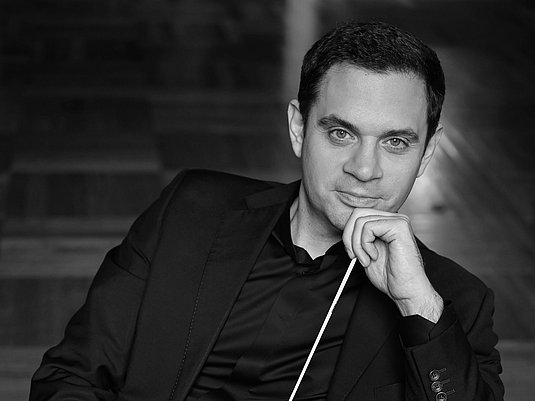
Kai Wessel
"Enchantingly pure" (Opernwelt), "...with sheer endless breath..." (Das Opernglas), "...a high degree of physicality..." (Opernglas) and "...with erotic impetus..." (Norddeutscher Rundfunk): Kai Wessel's singing is described with such attributes and ennobled with "...was one of the most lyrical, natural-sounding, evenly-registered counter-tenors I have ever heard" in the English magazine Opera.
Born in Hamburg, Kai Wessel initially studied music theory (Prof. Roland Ploeger) and composition (Prof. Dr. Friedhelm Döhl) at the Lübeck University of Music, and later also studied singing with Prof. Ute von Garczynski, who discovered and trained his alto voice (concert exam with distinction). At the same time, he studied baroque performance practice at the Schola Cantorum Basiliensis with René Jacobs, whose assistant he was for arrangements of several operas.
He won prizes at the VdMK competition in Berlin (including a special prize from the German Stage Association for the best interpretation of a contemporary work) and the Concours Musica Antiqua at the Flanders Festival in Bruges and received scholarships from the Studienstiftung des Deutschen Volkes and the DAAD (further training with Peter Kooy, Holland).
Kai Wessel is one of the leading representatives of his field, invited by orchestras and conductors all over the world (including Philippe Herreweghe, Nikolaus Harnoncourt, Gustav Leonhard, Jordi Savall, Ton Koopman, William Christie, Nicholas McGegan, Reinhard Goebel, Mazaaki Suzuki, Martin Haselböck, Michael Schneider, Hermann Max, Michel Corboz, Hans-Werner Henze, Ivan Fischer, Markus Stenz, Kent Nagano, Franz Welser-Möst, Sylvain Cambreling, Arturo Tamayo, Heinz Holliger, Peter Rundel), documented by radio, television and over 100 CD recordings.
Guest appearances have taken him to opera houses in Barcelona, Nice, Hamburg (premiere of B. Friedrich's "Lancelot's Mirror"), Hanover, Berlin (Deutsche Oper, premiere of Isabel Mundry's "Ein Atemzug - Odyssee"), Munich (premiere of Jörg Widmann's "Babylon"), Dresden, Cologne, Stuttgart, Freiburg, St. Gallen and the Theater Basel, where he was a guest artist from 1994 to 2004. There he appeared under the direction of Herbert Wernicke ("Theodora", "Aus Deutschland", "Giulio Cesare", "Wie liegt die Stadt so wüste", "Actus tragicus", "Israel in Egypt"), Joachim Schlömer (as Orfeo in Chr. W. Gluck's "Orfeo ed Euridice" and as Andy in the world premiere of Olga Neuwirth's "Lost Highway"), Karin
Beier and Claus Guth (as the Armenian Boy in the world premiere of Klaus Huber's "Schwarzerde").
He has also appeared in stage productions at festivals for baroque or contemporary music, such as the Handel Festivals in Göttingen (Joacim, Unulfo, Arsace, Giulio Cesare), Halle (Unulfo, Bertarido) and Karlsruhe (Giustino, Cleofe), in Schwetzingen (world premiere of S.Sciarrino "Luci mie traditrici", UA G.F.Haas "Thomas"), Vienna and Salzburg (S.Sciarrino "Luca min traditrici", A.Reimann "Lear"), Amsterdam and Venice (M. Kagel "Aus Deutschland"), Innsbruck, Bregenz (UA G.F. Haas "Die schöne Wunde") and Zurich (UA R. Irman "Poem ohne Held").
Works have been written for his voice by Annette Schlünz, Rebecca Saunders, Karola Obermüller, Chaya Czernowin, Mauricio Kagel, Heinz Holliger, Klaus Huber, Matthias Pintscher, Stefano Gervasoni, Helmut Oehring, Dániel Péter Biró and others.
Kai Wessel is Professor of Singing and Historical Performance Practice for Singers at the
Hochschule für Musik und Tanz Köln. As part of this activity and as a teacher of singing at the Konservatorium Wien Privatuniversität (2006-2012), he conducted revivals of Francesco Pistocchi's pastorale "Il Narciso" (WDR 2008/11), Antonio Caldara's oratorio "Il Batista" (WDR 2015) and a revival of the pastorale "La Ninfa contenta" by Giacomo Greber (WDR 2021) under his direction (studies with Jerome Preysinger).
From September 2014 to January 2020, Kai Wessel was also a lecturer in singing with a focus on contemporary vocal literature at the Bern University of the Arts and, in the 2019/20 academic year, interim lecturer in singing at the Haute École de Musique Genève.
Kai Wessel is the editor of numerous Baroque vocal works (J.W. Franck, F.A.M. Pistocchi, J.Ph. Sack, G.Ph. Telemann and others) for Edition Walhall and co-editor of the Schott Campus volume "Der Countertenor".
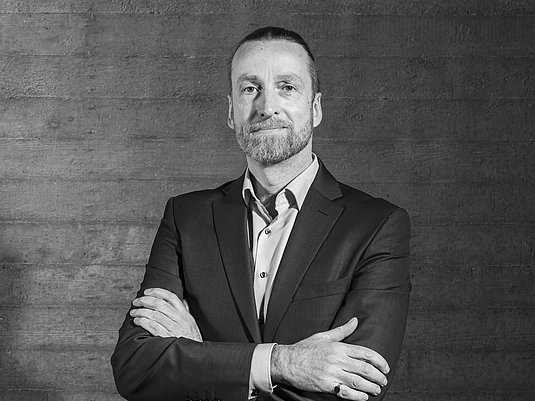
Our preliminary jury
Mirella Hagen
Soprano Mirella Hagen began her career as a member of the opera studio at the Stuttgart State Opera, where she worked with conductors such as Manfred Honeck and Marc Soustrot. There she sang roles such as Ännchen (Der Freischütz), Anna Kennedy (Maria Stuarda) and the Flower Girl (Parsifal).
After gaining further experience as an ensemble member at Theater Regensburg, Opera Vlaanderen, Oper Dortmund and Staatstheater Braunschweig, she began her freelance career with a large repertoire.
Mirella Hagen sang at the Theater an der Wien (Helena, Morgana, Waldvogel, Woglinde), at the Semperoper Dresden (Pamina, Gretel), at the Staatsoper Stuttgart (Pamina), at the Grand Théâtre Genève and the Bayerische Staatsoper (Waldvogel), Opéra National de Lyon (Ciboletta), Landestheater Detmold (Susanna), Komische Oper Berlin (Širin), Oper Graz (Hanne - Jahreszeiten). Under Kirill Petrenko she sang Woglinde and Waldvogel in Frank Castorf's Ring cycle at the Bayreuth Festival. She made her debut at the Elbphilharmonie shortly after the opening with Rheingold (Woglinde) under Marek Janowski and the NDR Symphony Orchestra. With Sir Simon Rattle she interpreted Woglinde in Rheingold with the BR Symphony Orchestra. The performance was released on BR Klassik.
She worked closely with Helmuth Rilling, with whom she sang various Bach cantatas and "Exsultate, jubilate" in Seoul (Korea) and Milan (Italy), as well as Mozart's Mass in C minor. She has appeared with René Jacobs in pieces such as Falstaff (Salieri), Il ritorno d'Ulisse in Patria (Monteverdi), Le nozze di Figaro (Mozart) and Orpheus (Telemann).
She has worked with orchestras such as the Budapest Festival Orchestra, the SWR Symphony Orchestra, the Bavarian Radio Symphony Orchestra, the Freiburg Baroque Orchestra, the Akademie für Alte Musik Berlin, the Internationale Bachakademie Stuttgart, Concentus Musicus Wien and Belgium's B'Rock, as well as Collegium 1704.
Mirella Hagen has sung on the most famous concert stages such as Concertgebouw Amsterdam, Wiener Konzerthaus, Elbphilharmonie Hamburg, Gasteig Munich, Kölner Philharmonie, Baden-Baden Festspielhaus, Liceu Barcelona, Bozar Brussels, Konzerthaus Berlin, Tonhalle Zurich Seoul Arts Center, Tonhalle Zurich, Teatro Olimpico and others. She works with the best conductors of today such as Iván Fischer, Kirill Petrenko, Sir Simon Rattle, René Jacobs and Antonello Manacorda.
During the pandemic, she was invited by Deutschlandradio Kultur to sing live concerts for radio audiences and recorded numerous works, including Hugo Wolf's Italian Songbook. Since studying with Prof. Ulrike Sonntag in Stuttgart, she has sung many recitals, for example at the Villa Wahnfried Bayreuth and the International Hugo Wolf Academy in Stuttgart.
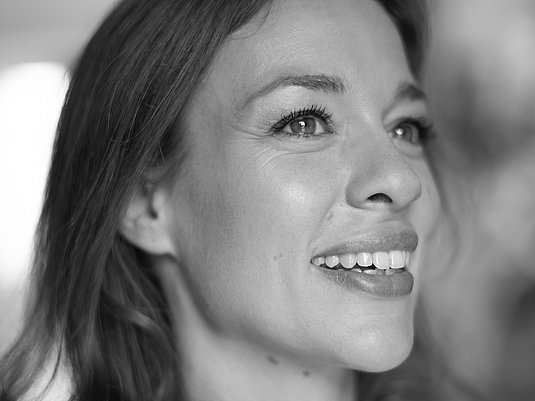
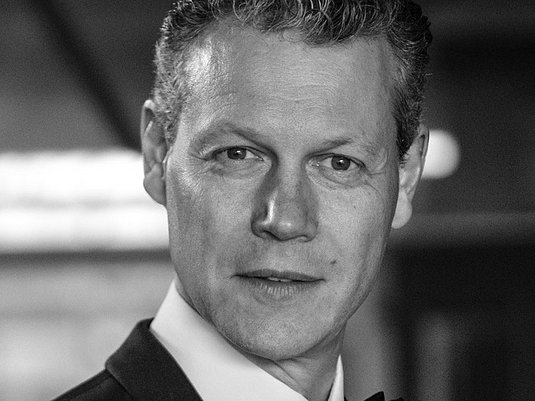
Thomas Laske
Born in Stuttgart, baritone Thomas Laske gained his first musical experience as a member of the Stuttgart Hymnus choirboys. After graduating in sound and visual engineering and singing with Brigitte Dürrler in Düsseldorf, he was first engaged by the opera studio of the Deutsche Oper am Rhein and then by the Wuppertal theatre. In 1997 he won the Richard Strauss Competition in Munich.
Extensive radio and CD recordings document his work. His CD recordings include Bach's ‘St John Passion’, ‘St Matthew Passion’, ‘Christmas Oratorio’, Mahler's ‘Lieder eines fahrenden Gesellen’ and ‘Kindertotenlieder’ and Schubert's ‘Winterreise’.
His operatic repertoire includes the great baritone roles of Mozart, Don Giovanni, Count
Almaviva and Figaro, as well as roles from Italian, French and Russian operas such as
Escamillo (Bizet's Carmen), Tchaikovsky's Eugene Onegin, Puccini's Marcello (La Bohème) and Verdi's Giorgio Germont (La Traviata) and Ford (Falstaff), as well as Count Danilo (Lehàr's Merry Widow) and Dr Falke and Gabriel von Eisenstein (Strauss' Fledermaus) in the operetta repertoire. Falke and Gabriel von Eisenstein (Strauss' Fledermaus). Guest engagements have taken him to the Deutsche Oper Berlin, the Bavarian State Opera, the Cologne Opera, the Frankfurt Opera, the Lower Saxony State Theatre in Hanover and the National Center for the Performing Arts in Beijing.
Above all, however, Thomas Laske is much in demand as a recitalist and concert singer,
appearing with conductors and ensembles such as Karl-Friedrich Beringer, Georg Christoph Biller, Riccardo Chailly, Enoch zu Guttenberg, Mariss Jansons, Ton Koopman, Hans-Christoph-Rademann, Helmut Rilling and Wolfgang Sawallisch, the Bavarian Radio Symphony Orchestra, the Bamberg Symphony Orchestra, the Deutsches Symphonie-Orchester Berlin, the Gewandhausorchester Leipzig, the St. Petersburg Philharmonic Orchestra, the St. Petersburg Symphony Orchestra and the Vienna Philharmonic Orchestra. Petersburg Philharmonic Orchestra, St. Petersburg Philharmonic Orchestra, Bamberg Symphony Orchestra, St. Petersburg Philharmonic Orchestra and the Bavarian Radio Symphony Orchestra. St Petersburg Philharmonic Orchestra, the Milan Guiseppe Verdi Symphony Orchestra, the Amsterdam Baroque Orchestra & Choir, the Dresden Kreuzchor, the Thomanerchor Leipzig and the Windsbacher Knabenchor.
The Robert-Schumann-Hochschule in Düsseldorf awarded him the title of Honorary
Professor for his teaching activities.
With you, for you: accompanists
Yoshiko Terada
Yoshiko Hashimoto was born in Hiroshima, Japan, in 1977 and began her piano studies with Prof. Mari Takeda at the Tokyo College of Music in 1996. This was soon followed by a prize at the JPTA piano competition in Tokyo. As part of her piano diploma in 2000, she received a distinction in piano duet. Since October 2002 she has been living in Cologne, where she studies with Prof. Jürgen Glauss in the class for song accompaniment at the Cologne University of Music and received a prize for accompaniment at the 2005 Cologne Song Competition, and has performed in numerous concerts as a song accompanist in Europe and Asia.Since 2003 she has accompanied in the singing classes of Prof. Henner Leyhe, Prof. Klesie Kelly-Moog, Prof. Edda Moser, Prof. Arthur Janzen, Prof. Phillip Langshaw and their vocal master classes, and since 2006 she has held a teaching position as accompanist for the scenic lessons, the opera projects and several singing classes at the Cologne University of Music. As a répétiteur she worked with the WDR Rundfunkchor on several projects and concerts and was a substitute at the Theater Bonn. In 2006 she won the scholarship of the Richard Wagner Foundation Cologne.
